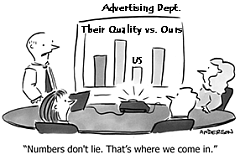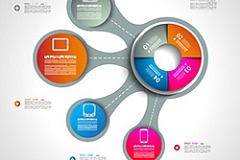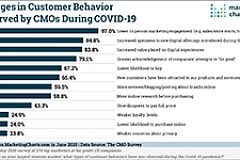If you're looking to build a strong brand that customers trust, you must be responsive to the important ethical issues in marketing. Why now? Because in today's digital world, marketing practices are more scrutinized than ever.
With a single click, businesses can reach millions. But this power comes with significant responsibilities making ethical marketing not only a choice but a necessity for sustainable growth.
It's about building trust, respecting consumer rights, and having transparent and honest communication. After all, who would buy from someone they did not trust?
Here we will not only outline these ethical issues in marketing, but provide solutions for business owners.
The Core of Ethical Marketing
Ethical marketing guides businesses through digital marketing. It encompasses:
- Assuring data privacy,
- Shielding against manipulative advertising techniques,
- Upholding consumer rights,
- Ensuring the responsible handling of customer data, and
- Promoting genuine brand communication.
But how can businesses navigate these complex issues?
Data Privacy: The Cornerstone of Ethical Marketing
The protection of customer data is a major concern in ethical marketing. The increase in online activities has heightened the risks associated with data privacy.
Businesses must follow strict legal standards to protect their customers' personal information. Keeping data safe is crucial to building trust with consumers. This trust is key to a good relationship between businesses and their customers.
Ensuring data privacy helps prevent unauthorized access and misuse of consumer information. It's a clear signal to customers that their well-being is a top priority.
The Pitfalls of Manipulative Advertising Techniques
The urge to use manipulative advertising can be strong, especially when competing online. But, strategies that mislead or exploit consumers' vulnerabilities can damage a brand's credibility and trust.
Ethical marketing rejects such deceptive practices. Instead, it opts for a platform of honesty and transparency.
This approach is crucial for building a solid foundation of trust with your audience. It also ensures that marketing efforts are sustainable in the long term.
Championing Consumer Rights
At its core, ethical marketing is about putting the consumer first. This means providing clear, accurate, and honest information about products and services.
It also involves listening to the customer to ensure their rights are always put first. By doing this, companies can create a fair and honest environment for consumers. Listening to and acting on customer feedback shows a dedication to ethical behavior.
The Ethics of Customer Data Management
Responsible customer data management is a hallmark of ethical marketing. With increasing consumer data collection, companies must be unequivocal about their data practices.
Transparency in how consumer data is gathered, utilized, and protected is critical. Further, offering consumers control over their personal information strengthens their trust.
Businesses should also ensure that data is used to benefit the consumer. Doing this enhances their experience without compromising their privacy.
Strategies for Authentic Brand Communication
Authentic brand communication sets a company apart in a marketplace of competing messages. Authenticity means being truthful about your products, services, values, and operational practices. This sincerity attracts the right audience and creates loyalty over the long term.
Authentic communication means being clear and honest without using exaggerated or false messages. It builds a genuine connection with people and makes the brand seem more reliable. This authenticity increases people's trust in the company.
Engaging in Ethical Marketing Practices
Ethical marketing is vital for building trust with your audience. It involves clear, honest communication and respectful treatment of consumer data.
Carefully consider the following seven principles of ethical marketing in today’s commercial environment and your adherence to them. Ask yourself, “What can we do better?”
1. Respect Privacy and Protect Data
Companies should protect user data well and be clear about how they use this information. They should also often check their privacy policies and adjust to new laws. Doing this shows they care about their customers' privacy.
Companies must teach their customers about their rights to share their data and how to manage it. This education fosters a culture of openness and trust.
2. Avoid Misleading Tactics
Ethical marketing requires a departure from exaggerated claims and deceptive tactics. Focusing on the real value of your product or service respects your audience. It also cultivates a lasting relationship based on trust.
Honesty lowers the chance of legal problems from advertising promises. Transparent communication is the cornerstone of ethical marketing.
3. Empower Consumers
Empowering consumers involves providing them with the necessary information to make informed choices. This information includes some of the following:
- Clear product descriptions,
- Transparent pricing,
- Straightforward advertising, and
- Customer testimonials – the good and the bad.
Why bad ones? Bad reviews give you the opportunity to showcase how well you respond to legitimate problems buyers have.
Such practices underscore a business's dedication to upholding consumer rights and ethical standards.
Also, by seeking feedback, companies can further empower their customers. This ensures their voices are heard and valued.
4. Handle Customer Data With Care
A customer-centric approach in data management signifies a deep respect for consumer privacy. Managing personal information and providing clear privacy preferences build a trustworthy brand.
Regular training for employees on how to protect data keeps consumer information safe.
Also, cutting-edge security technologies play a significant role in safeguarding customer data. Continuous improvement and vigilance in data security are also central to data protection. Mounting a strong and technologically up-to-date defense protects against potential data breaches and cyber threats…and the terrible publicity that goes with them.
5. Communicate Authentically
Your brand's messaging must be consistent, honest, and true to your values. Authentic communication enhances your brand's image and fosters a community of loyal customers.
Following these rules helps companies handle digital marketing's challenges with strong ethics. Being committed to ethical marketing builds a strong base for lasting success. This approach ensures businesses succeed over time.
6. Promote Sustainable Practices
Encouraging sustainable practices shows that a business cares about the environment and society. It also shows that companies prioritize the future over quick profits.
Being eco-friendly attracts customers who care about the environment. Some sustainable actions include:
- Using green materials,
- Cutting down on trash, and
- Reducing the amount of pollution.
Being open about these green efforts teaches people why sustainability is important. Imparting this knowledge can also help them desire green options.
Getting into sustainability also creates new opportunities for business. It can also bring new ideas for products and services.
7. Develop a Culture of Ethical Behavior in Your Company and Its Marketing
Ethical issues in marketing pose no significant challenges to ethical companies. Seize the day and see it as your time to take the high road and consistently do the right thing.
Business owners who commit to ethical marketing practices show respect for their customers and earn their loyalty and trust. Their focus is on the long-term vision for their brand.
All business owners wrestle with aggravations and situations that never seem to go away no matter what. Often, these are caused by trust issues. Fortunately, that is something you can quickly influence and watch those irritations self-solve.
For help in changing the culture of your company and reaping the substantial rewards from being an organization built on trust both within and without, consider reaching out to us to discuss your situation. We guarantee you’ll leave with some great insights at the very least and it won’t cost a cent! Get in touch and let's set up a time to talk. Brian Tracy USA: 877.433.6225 Email Me feedback@focalpointcoaching.com














